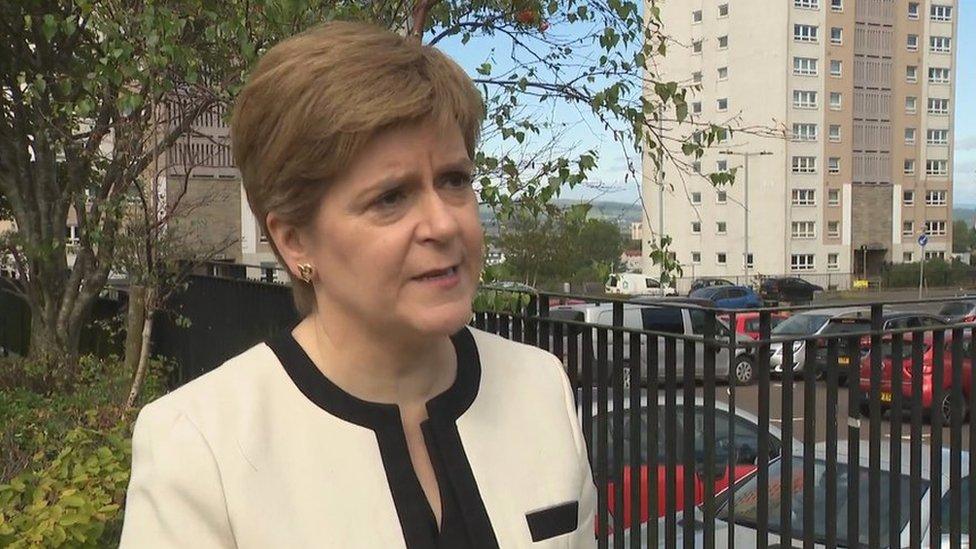Would public energy ownership work?
- Published
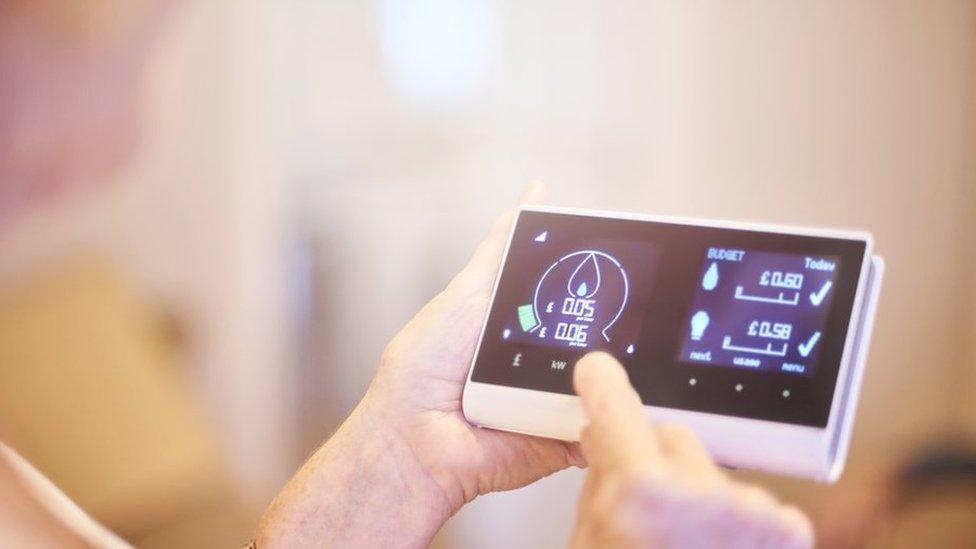
Nicola Sturgeon has called for public ownership of energy retail to be at least "considered" by the Westminster government, as one response to the energy cost crisis.
One study of the market suggests that could be done relatively cheaply. But making the market work better will require more change and more investment than a change of ownership. And it doesn't touch the vast profits being made by oil and gas producers.
Meanwhile, there is a case for using high prices to drive harder in the transition to renewable energy sources. But it is hard, for now, to get the focus from the short-term worry about bills to the long-term opportunity.

Nationalise the energy companies: it's a slogan that is proving attractive to the public as they watch bills soar.
And First Minister Nicola Sturgeon thinks it should be at least "considered" at Westminster, where they have the powers to make it happen.
The first minister has previously engaged with the energy market. Before the current crisis, when it was felt energy retailers were over-charging, there was a high-profile conference speech pledge to set up a Scottish government-owned supplier.
But as other suppliers went bust, that idea has been ditched.
With 30 fewer retail suppliers than last year, and more concentration on the big five suppliers, what would public ownership mean, and how might it work?
First, that retail sector of the market is only one part of the energy industry. The vast profits are being made by companies, or bits of firms, that drill and produce oil and gas.
There are also currently some big margins for those who do the refining.
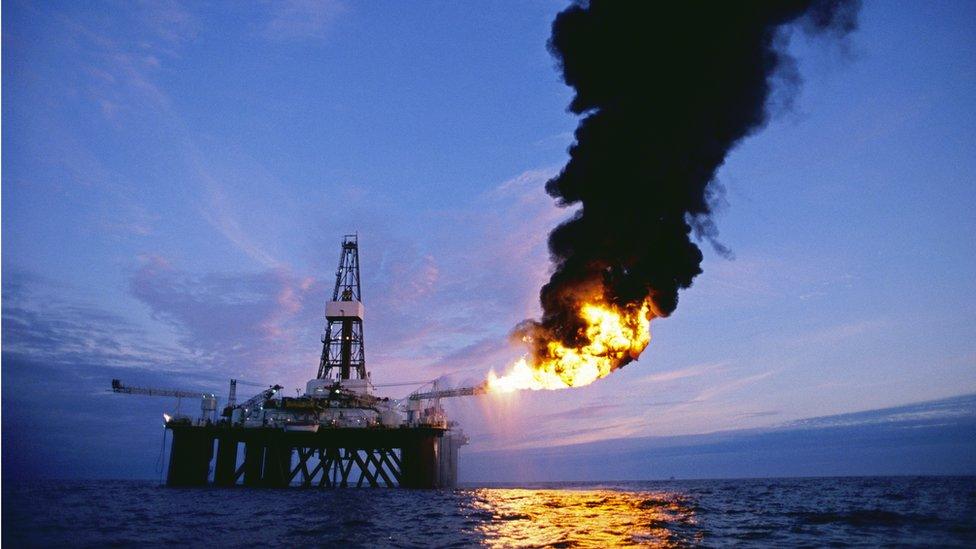
An offshore oil exploration rig, in the Scottish sector of the North Sea, burns off oil and natural gas it has just tapped
There are other firms that run the cables and pipeline networks that get energy into homes and businesses. They are heavily regulated, and the amount of profit they're allowed to make is tightly controlled.
And there are retail companies which compete - at least in normal times - to provide you with your gas and electricity, and often your broadband as well.
This is seen as the terrain where government could step in and replace private companies, perhaps with regional suppliers, such as we used to have until the 1980s.
The South of Scotland Electricity Board became Scottish Power, and is owned by Iberdrola in Spain.
The Hydro-Electric Board covered the north of Scotland, it has become part of SSE, and its retail business was sold off to Ovo.
Those advocating public ownership say the UK government could buy out shareholders, through legislation. They would have to pay a fair market rate.
If they don't, and simply seize the assets, that would surely skewer private investment in the economy more widely.
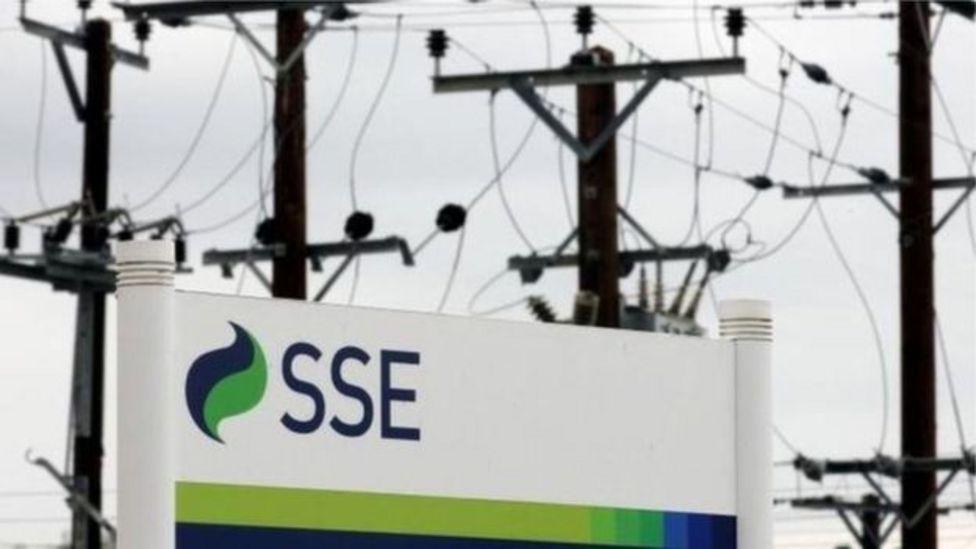
The Trades Union Congress (TUC) last month published a report, external arguing for this, and totting up the many billions paid out in dividends and share buy-backs that benefit the private owners of the energy industry.
The report explains that it's hard to carve out the precise value of bits of companies which are much bigger than their retail divisions. Most of them are owned outside the UK, with varying accounting practices.
But the TUC suggests the current market value, judging by the amount paid by Ovo to take over SSE's retail business, would be around £2.85bn.
Even before the crisis, energy retail was going cheaply. It's been proving hard to make much money out of it, and managing the IT has been a nightmare for some.
The report also points out that these businesses could be valued at far less while they are making big losses, which somewhat undermines the complaints that there is too much profit being made. The opportunity to make profit also comes with the risk of making a loss.
To buy out the big oil producers at their current valuation would be extremely expensive, and an odd thing for government to prioritise, when it needs to invest so much in moving energy away from oil and gas.
If the retailers were taken over, government would have to do what the private companies do - buy energy on the wholesale markets, where prices are set by international factors, and then absorb the cost of delay in passing on high wholesale prices.
And if we're now in the strange position of wanting to put a cap on a price cap, then unless the government has control of the upstream production, that means a big subsidy. So the bills mount up, paid for by borrowing or taxation.
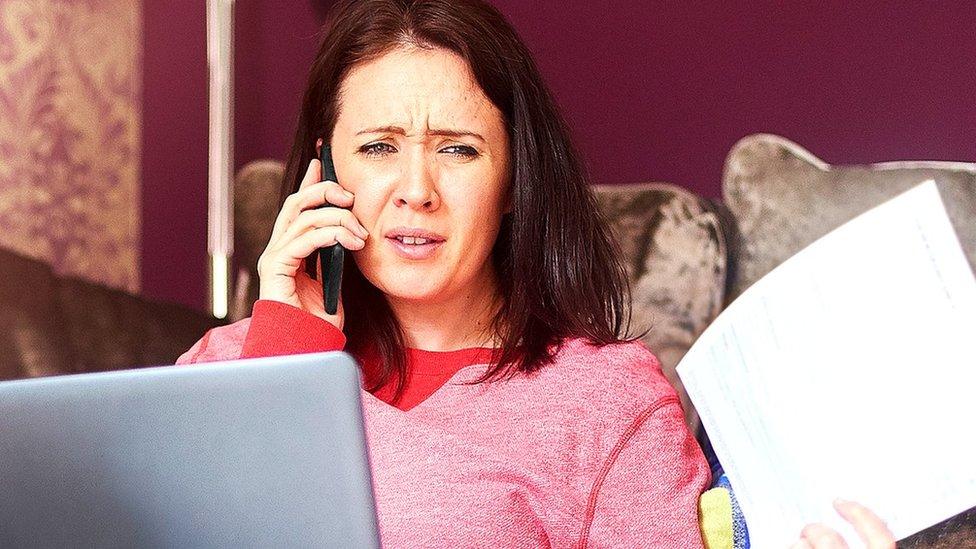
Retailing energy is a very investment-intensive thing to do. We've seen private firms struggle to get their billing and complaints systems right.
They then have to invest in an electricity market which is getting far far more complex - less about sending energy into homes and businesses from big power plants, and more about complex distribution and feed-in from households and businesses, with incentives to reduce energy use with off-peak tariffs, and tens of billions of pounds required to invest in renewable energy resources, such as wind farms.
All of that would have to come from public investment, competing with other priorities for sustaining public services. And for now at least, no profit.
In her interview with BBC Scotland, Nicola Sturgeon points to France as one country that has taken control of its main energy supplier and capped energy bill rises at 4%.
The French government already owned 84% of EDF. The French are in a happier position of depending less on gas to generate electricity. They have much more nuclear, and they sell Britain quite a lot of what they generate.
Across Europe, governments have done more than Britain to store gas. They're currently trying to fill storage for next winter with far less than previously coming out of Russia. As they secure supply, that is pushing up prices.
Those who have reserves can level out the wild fluctuations of the short-term market. But Britain doesn't have stored reserves under public control. Its energy security comes from having offshore gas fields, which are owned by private companies. It is more vulnerable to short-term fluctuations.
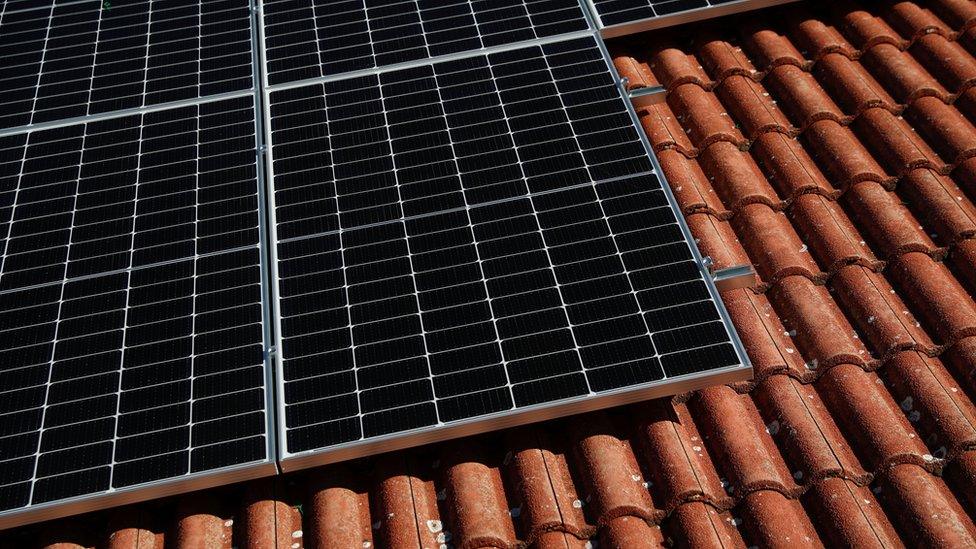
So it's easier for the Paris government to do as it's done, though it will also face a very high cost to government for subsidising energy bills. And that eventually comes back to taxpayers.
Meanwhile, there is an argument that high prices should act as a price signal, telling people and businesses it's time to use less gas, less petrol, less diesel, and to find better alternatives - in this case, alternatives which reduce carbon emissions and climate change.
That's affecting car sales, where the costs of electric cars become relatively more attractive. The cost of solar panels and air source heat pumps will do the same.
Spending money on insulation of your home, or a more efficient use of energy in a factory, becomes more attractive, so people make that switch.
That is not a bad outcome, in light of the "climate emergency", but for now, the public discourse is about next winter and how people will pay for the gas, oil and electricity systems they've currently got.
- Published21 August 2022
